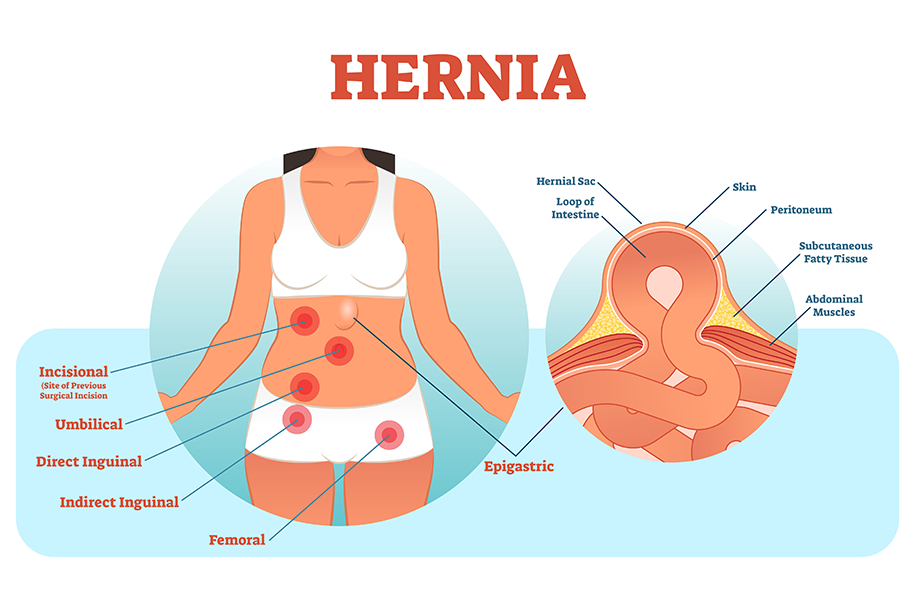
July 27, 2022
Hernias cause a lump or a bulge in areas such as the umbilicus (umbilical hernia), groin (inguinal hernia), or surgical incision (incisional hernia). If the protruding part or organ is not pushed back into place, the hernia may get trapped in the abdominal wall, eventually becoming strangulated. When that happens, it can obstruct, or it can off the blood supply to the surrounding tissue. When left untreated, a strangulated hernia can even lead to life-threatening conditions like severe inflammation of the intestine (necrotizing enterocolitis) and sepsis. It’s worth noting that anyone belonging to any age group can develop hernias. General surgeons in Fort Worth, Texas help hundreds of people with hernias every year. It helps to know the warning signs so that you can take action such as seeking hernia surgery before things go south. In this blog, we are going to look at some of the symptoms that necessitate hernia surgery.
What is a hernia?
A hernia generally occurs when an organ or fatty tissue pushes through a weak spot in the surrounding muscle wall or connective tissue. In most cases, hernias tend not to get better on their own as they generally get bigger with time. Not every type of hernia needs immediate treatment. Whether a patient needs treatment such as surgery entirely depends on the hernia’s size and the symptoms. In the event that the hernia doesn’t become symptomatic, patients may not require surgery. If, however, you suspect that you have a hernia, it is always best to consult hernia surgeons in Fort Worth, TX, just to ascertain the seriousness of the condition.
Common symptoms of a hernia
The seven common symptoms of hernia are:
- A bulge or swelling around the scrotum or groin
- Increased pain in and around the bulge
- A sensation of pain while lifting weights or heavy items
- An increase in the size of the bulge over time.
- An aching sensation
- Signs of bowel obstruction
- A sense of feeling full without eating much
When to opt for hernia surgery? 5 worrisome symptoms
If you experience any of the following symptoms, make sure you consult a general surgeon in Fort Worth, TX, right away:
- Worsening or sudden intense pain: It might suggest the occurrence of hernia strangulation.
- Change in the bulge’s color: If the bulge gets darker in color, it means that the blood flow to the hernia is cut off.
- Vomiting or nausea: It suggests that the hernia has reached a severe condition, as it has started affecting the digestive organs.
- Constipation: This happens when a part of the intestine gets trapped in the hernia, necessitating immediate action.
- Fever: This, again, is a symptom of a strangulated hernia, a severe condition that needs immediate attention.
Final word
Early diagnosis is the only way of knowing whether a hernia is severe or not. This is only possible if you know some of the symptoms associated with the condition. When looking to consult for hernia surgery in Dallas, look no further than DFW Bariatrics and General Surgery. Our team of top hernia surgeons in Fort worth, Texas leverage state-of-the-art technology to deliver accurate diagnosis and, when necessary, early surgical intervention. To speak with a leading general surgeon in Fort Worth, TX, call 469-620-0222 or email [email protected]. You can also make an online appointment request.
